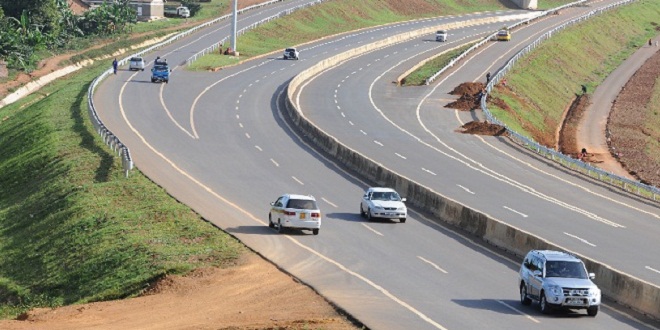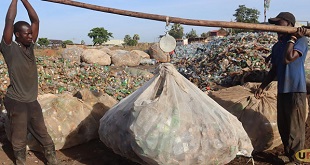
Kampala, Uganda | THE INDEPENDENT | China’s loans to African countries have been questioned with experts saying China is here to actualize self-interests.
This featured prominently in discussions at the 2019 Kampala Geopolitics Conference in Makerere University.
Ingo Badoreck, the Konrad-Adenauer-Stiftung (KAS) director Rule of Law programme in West Africa says although it is completely legitimate to have infrastructure developments on the continue, there is a complete imbalance of power between China and the African countries.
China is by far, the largest investor on the continent injecting over US$2.2 billion annually.
Badoreck says although being the largest investor is not a bad thing, African countries need to be aware of China’s strategic interests, in order to be able to negotiate the deals in the continent’s interests.
“Chinese government has funded the railway construction between Mombasa and Nairobi to cost 3.6 billion euros. That money will be paid over the next 30 years. That means Kenya will not be in position to make independent fiscal decisions, on the basis of the projected income because they are bound to pay these cheques back,” Ingo Badoreck says.
He adds that the Chinese loans are completely underestimated by many African leaders given the looming debt crisis with currently US$648 billion about 20% of external debt for African countries belonging to China.
But Morrison Rwakakamba, the Global Senior Director of Policy at Fenix International, however, disagrees with Badoreck citing that it is now time for Africa to focus more on its transformation basing on strengthened institutions, infrastructure and fostering integration.
Rwakakamba further argues that Africa is more prepared today than it was 50 years ago to decide on who to choose for investment on the continent. He dismisses as rumour, the notion that Chinese government is taking over some of the infrastructure projects in Africa due to loans.
Economic Policy Research Centre (EPRC) research fellow Dr Madina Guloba compares China’s investment models with Uganda to Ethiopia where both African countries are heavily investing in infrastructure with the help of the Chinese government.
She says while there is citizen’s full involvement towards financing the infrastructure projects in Ethiopia, the model is different with Uganda.
According to Dr Guloba majority of the infrastructure in Uganda built using Chinese loans are not connected to production meaning it will be difficult to recoup the money back to finance the loans.
Kwezi Tabaro, the Deputy Director of LéO Africa Institute, a Kampala based leadership development and training institute says China offers better deals since their projects in Uganda, for instance, are time-bound compared to projects funded by other partners.
“The Kampala Express High way is 51 kilometres and it was built in a space of three years from 2015 to 2018. The Kampala Northern Bypass project has been since 2005. That road was meant to be constructed for the Commonwealth Heads of Government Meeting (CHOGM) which happened in 2007,” Kwezi says.
He adds that the 23 kilometres road hasn’t been done up to date implying that for as long as the project is delayed, the government of Uganda has to pay to the contractor.
But Dr Guloba says there is a huge difference between a deal negotiated by China and the European Union. She says unlike the EU, given an opportunity, China follows its deal and offers to construct.
She contends that it was a mistake by EU to give money to a country like Uganda with many financial leakages especially for the Northern Bypass infrastructure project without mechanisms to ensure their money is being put to intended use.
Gunter Rieck Monchayo, KAS’ economic policy advisor in the Sub-Saharan team says African people must be empowered to hold their leaders accountable.
He adds that the continent needs to devise practical means that fosters regional integration including regional trade as well as supporting increasing exports of value-added products to prevent the losses.
Dr Maggie Kigozi, the former director Uganda Investment Authority disagrees that investors are causing illicit financial flows.
She is optimistic that once government ensures a good investment environment with proper regulation and participation of the private sector, Africa will benefit more from the loans.
“One of the ways to prevent this illicit financial flows is through the new generation of very highly educated young people who will be able to identify what maybe my father’s age mates failed to see. These will be in regulatory agencies”
*****
URN
 The Independent Uganda: You get the Truth we Pay the Price
The Independent Uganda: You get the Truth we Pay the Price



